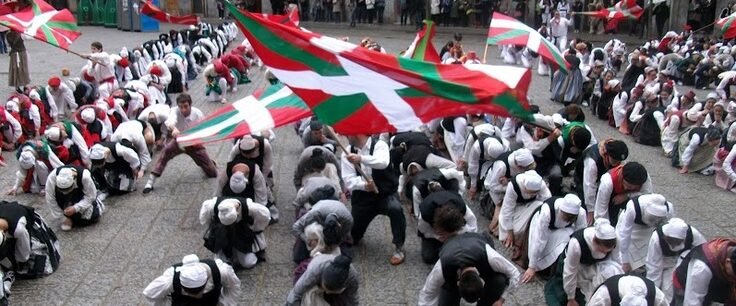The Rich Heritage of Basque Culture
The Basque culture, one of Europe’s most distinctive, carries a historical depth that transcends time. The unique characteristics of Basque culture are significantly shaped by its language, Euskara – one of the oldest languages still spoken today, which remains a cornerstone of Basque identity and pride. Unlike neighboring Spanish or French, Euskara is a language isolate, contributing immensely to the preservation of Basque individuality.
Traditional customs are deeply rooted in Basque culture, manifesting vividly in their art forms. Dance and music, especially featuring instruments like the txalaparta, play a crucial role in Basque celebrations and communal activities. These cultural expressions offer a glimpse into the Basque way of life, emphasizing community harmony and collective joy. The txalaparta, a wooden percussion instrument, is often used during these festive occasions, producing rhythmic sounds that resonate with the Basque spirit.
Festivals are another significant cultural aspect, showcasing an array of Basque traditions. Events like the annual Aste Nagusia in Bilbao or San Fermín in Pamplona not only highlight regional pride but also attract global spectators. These gatherings underline the Basque people’s ability to blend ancient customs with modern celebratory practices, preserving their heritage through public participation and collective memory.
Basque mythology adds further color to this rich cultural tapestry. Tales of mythological figures such as Mari, the goddess of nature, are still recounted, serving both as educational stories and as a means to keep ancient beliefs alive. These myths contribute to a broader understanding of the region’s historical ethos and spiritual landscape.
Traditional sports like pelota, a game akin to handball, are also emblematic of Basque culture. Pelota remains popular, with competitions and local matches drawing significant attention, symbolizing the community’s resilience and competitive spirit.
Moreover, the Basque contribution to gastronomy is worthy of note. Pintxos, a type of snack similar to tapas but with distinctive Basque flair, epitomize the region’s culinary innovation. The Basque culinary scene, characterized by its Michelin-starred restaurants and gastronomic societies, reflects a commitment to preserving and evolving traditional flavors
In conclusion, the Basque people exhibit remarkable resilience and pride in maintaining their cultural heritage. Through their language, customs, festivals, mythology, sports, and culinary arts, they persist in showcasing a vibrant identity, harmonizing past influences with contemporary expressions.
Basque Gatherings: Celebrations and Social Cohesion
The Basque region is renowned for its vibrant community life, epitomized through its myriad of gatherings and celebrations. At the heart of these communal events lies the desire to fortify social bonds and preserve cultural identity. A quintessential example is the Tamborrada in San Sebastián, a vibrant festival where locals dress as cooks and soldiers, parading and drumming through the streets. This event, held annually on January 20th, exemplifies the unity and shared heritage among participants.
Equally significant is the Aste Nagusia, or the Great Week, in Bilbao, an exuberant festival that occurs every August. It serves as a cornerstone of communal interaction, featuring concerts, fireworks, and traditional sports. Locals and visitors alike partake in the festivities, celebrating Bilbao’s rich cultural tapestry. This event underscores how community participation is integral to reinforcing the social fabric.
Moreover, the Semana Grande, held in various parts of the Basque Country, epitomizes the blend of tradition and modernity. These festivities attract thousands who engage in a multitude of activities, from bullfighting events to concerts, illustrating the dynamic nature of Basque gatherings. These larger events are a vibrant testament to the region’s commitment to maintaining intergenerational connections and celebrating cultural heritage.
Besides these grand celebrations, local festivities, or herriko jaiak, play an equally vital role in fostering camaraderie. These smaller-scale events enable communities to celebrate their unique local traditions and customs, thus reinforcing a sense of Basque identity. Additionally, they provide a platform for intergenerational interaction, allowing younger generations to inherit and perpetuate their cultural legacy.
The importance of these social gatherings extends beyond mere festivity; they serve as pivotal mechanisms for sustaining cultural continuity. Through these events, Basque communities articulate a shared history and identity, ensuring cultural practices and social cohesion are passed down to future generations. Indeed, the vibrant community life of the Basque region is inextricably linked to the significance of these gatherings, which continue to play a crucial role in sustaining and enriching Basque culture.



